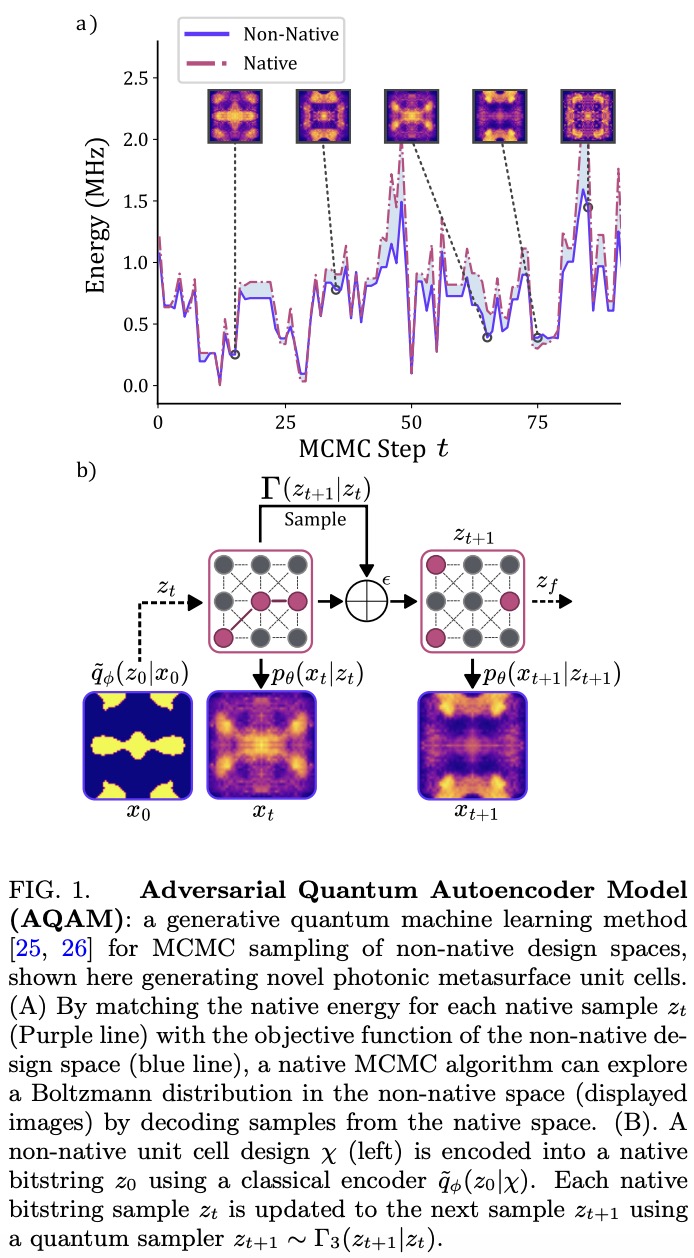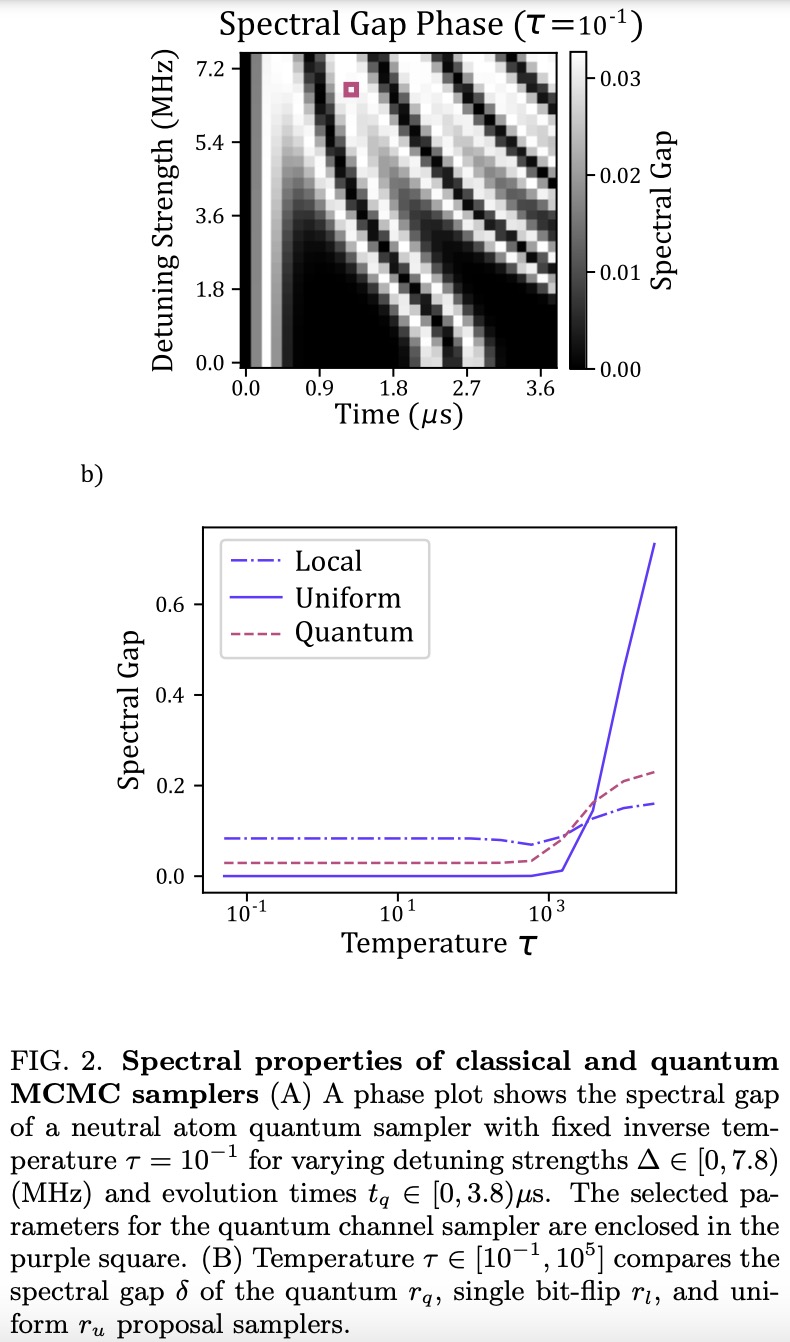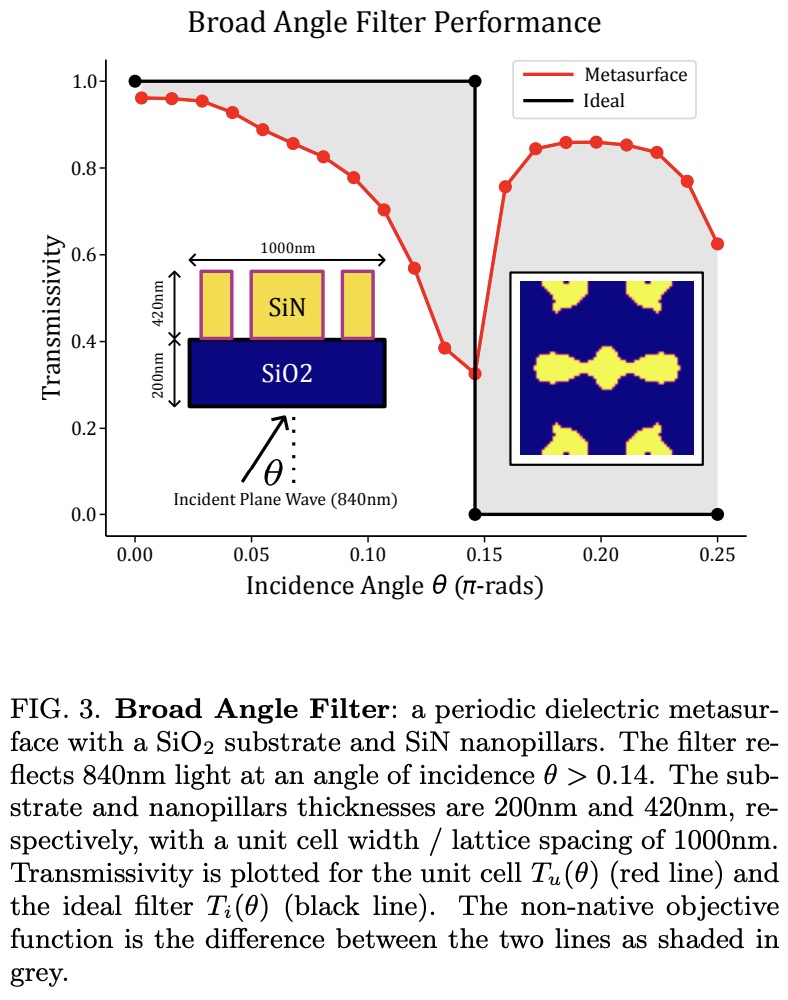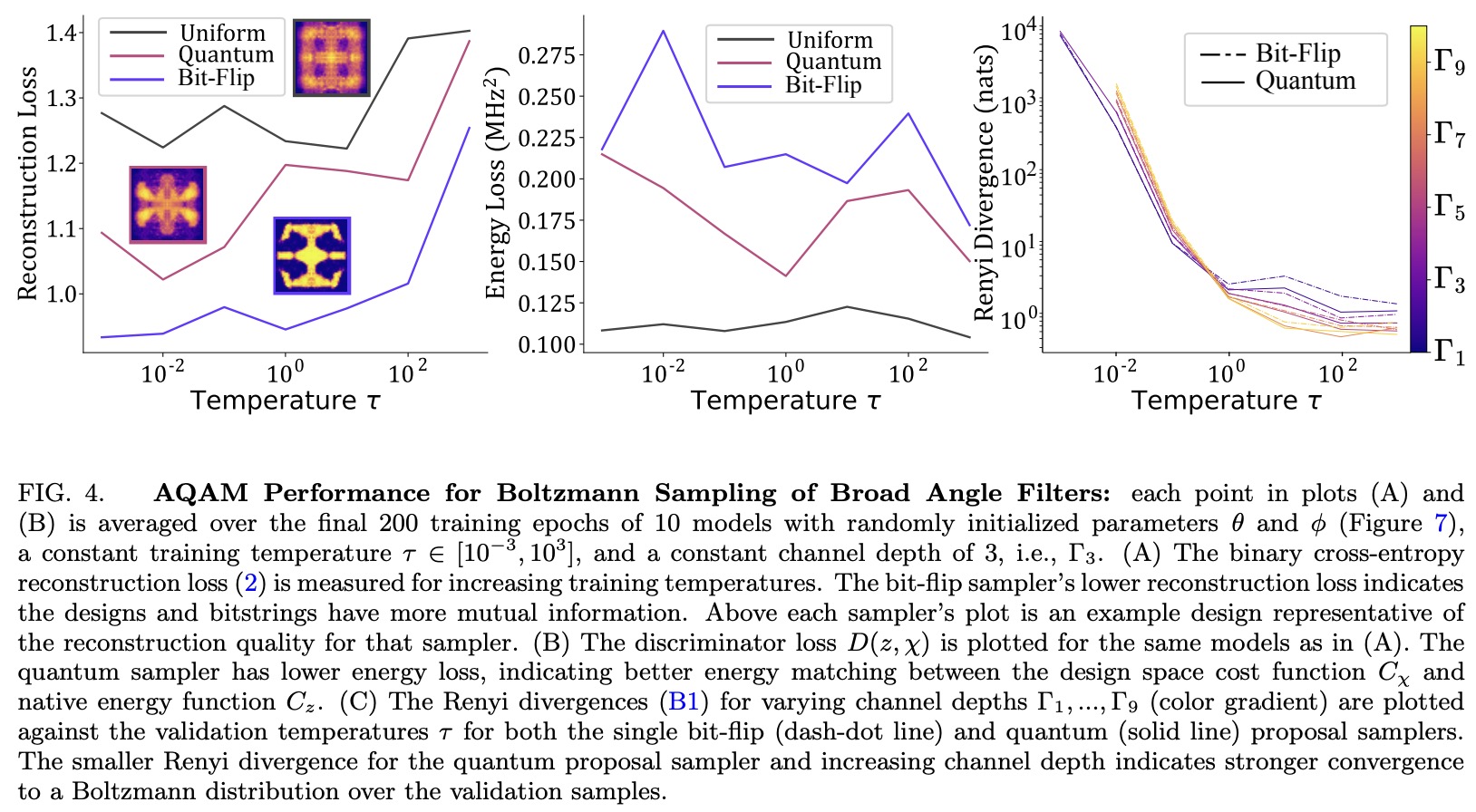Non-native Quantum Generative Optimization with Adversarial Autoencoders
2024-07-23 10:27
1539 浏览
Large-scale optimization problems are prevalent in several fields, including engineering, finance,
and logistics. However, most optimization problems cannot be efficiently encoded onto a physical
system because the existing quantum samplers have too few qubits. Another typical limiting factor
is that the optimization constraints are not compatible with the native cost Hamiltonian. This
work presents a new approach to address these challenges. We introduce the adversarial quantum
autoencoder model (AQAM) that can be used to map large-scale optimization problems onto existing
quantum samplers while simultaneously optimizing the problem through latent quantum-enhanced
Boltzmann sampling. We demonstrate the AQAM on a neutral atom sampler, and showcase the
model by optimizing 64px×64px unit cells that represent a broad-angle filter metasurface applicable
to improving the coherence of neutral atom devices. Using 12-atom simulations, we demonstrate
that the AQAM achieves a lower Renyi divergence and a larger spectral gap when compared to
classical Markov Chain Monte Carlo samplers. Our work paves the way to more efficient mapping
of conventional optimization problems into existing quantum samplers.








https://arxiv.org/pdf/2407.13830
